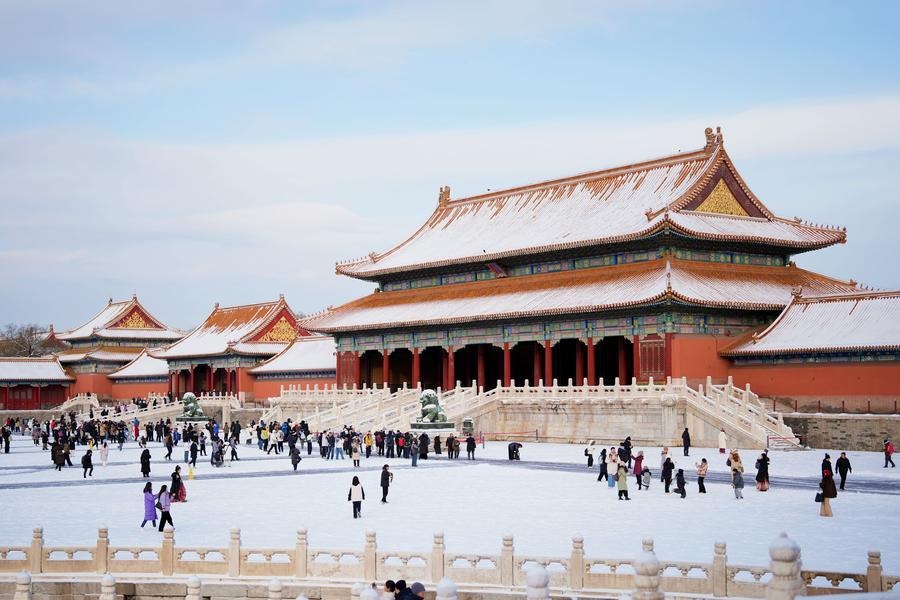LAC is not backyard


Neo-Monroe Doctrine vainly defies the transition to a more interconnected global society
The pretensions of the United States are exerting themselves in a creative game of threats and impositions that allow it to deepen asymmetrical intrusions in the international order. In what could be framed as a belligerent attempt to recover lost US spaces in the global economy, and a belated search for reindustrialization by nearshoring, commercial geographic control and unilateral expansion, we are unfortunately witnessing the resurgent Neo-Monroe Doctrine.
After decades of neglect and a presumed dominant position over its neighboring region, the US is finally taking it as its supposed right for legitimate defense to national security. It is doing so by seeking illegal control of the Panama Canal, a neocolonial expansion in Greenland, and a vision of a world oriented to satisfy its own wishes. Countries in the Western Hemisphere are unwittingly caught up in a trade war whose purpose is to alienate and to antagonize these countries from non-US powers in a multipolar world, where crucial investment and diplomatic engagement fill the power vacuum of longtime US oversight and stunted growth and development in the region for years.
Now the US wants to determine the dynamics of the international system, as well as limit any economy that becomes a threat to its hegemonic leadership on the political, commercial and technological levels. What happens now is clear, the US is promoting the submission of governments by intimidation or threats in order to prevent the expansion of other economies in the Western Hemisphere.
In this context, the Forum of China and the Community of Latin American and Caribbean States, or the China-CELAC Forum, was held, a space for 10 years for building bridges of friendship and excellent relations that have intensified in this century. China's foreign policy supports legitimate defense, safeguarding the fairness and openness of the international system, promoting global development that is more inclusive, coordinated and beneficial to all parties, while at the same time having the right to access technological innovation for the advancement of peoples, hence the need to establish a shared position against the technological blockade, decoupling, as well as cutting of supply chains.
While it is true that the initial expressions of the Neo-Monroe Doctrine were felt in the first meetings of US Secretary of State Marco Rubio in Central America and the Dominican Republic, they were more intense prior to the convening of the China-CELAC Forum held in May. The Neo-Monroe Doctrine is based on the ability of the US to limit the presence of China, as well as Russia, in the Western Hemisphere, from a geoeconomic resignification aimed at containing other economies that might potentially emerge with global influence in the Western Hemisphere, for which the policy of the stick — tariffs — as well as the uncertainty of the carrot — international cooperation funds — become weapons of negotiation and submission wielded against the Latin American countries.
China's trade with the CELAC countries has experienced a significant increase, growing by 7 percent annually in 2024 in imports from China and by 4 percent in the case of those from the European Union, while it would have fallen by 1 percent in the case of those from the US, according to the Economic Commission for Latin America and the Caribbean (ECLAC) 2024. The imposition of tariffs responds to a political interest in geopolitics to maintain the US' control in the region (Canada, Mexico and Central America) and try to reverse the rapid growth of the Chinese presence and influence in South America.
Of course, the imposition of tariffs will be more sensitive for those Latin American countries with greater trade dependence on the US, which include Mexico, Brazil, Chile, Colombia, the Dominican Republic, Peru, Argentina, Panama and Guatemala. In these countries, imports from the US are lower than exports, according to ECLAC 2024. In addition to the growing trade relations with China, the Latin American countries that exported the most in 2023 were Brazil, Chile, Peru, Mexico, Ecuador, Argentina, Colombia and Costa Rica, according to Statista 2024.
The China-CELAC Forum faces, with historical responsibility, the ever-greater pressure from the imposition of force at the international level and the attempted dismantling of the precarious international system aimed at creating room for the techno feudalism that is dangerously on the rise.
In an increasingly interdependent world, solidarity must be one of its supreme values, hence the importance of reforming global economic governance, providing a change of vision to ensure a more interconnected global society, and an unwavering dedication to sustainability and equity. Harmonious economic growth is only possible on the back of human solidarity and ecological harmony.
The author is director of the Doctorate in Public and Business Management at the Central American Institute of Public Administration and a researcher at the Center for Historical Research of Central America of the University of Costa Rica. The author contributed this article to China Watch, a think tank powered by China Daily. The views do not necessarily reflect those of China Daily.
Contact the editor at editor@chinawatch.cn.


































